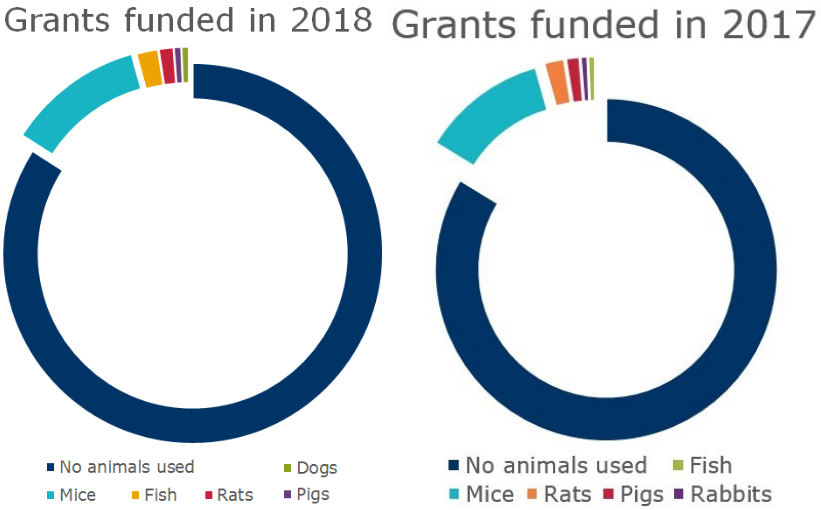As one of the signatories of the 2014 Concordant on Openness on Animal Research the Academy of Medical Sciences is committed to transparency around how we conduct, fund or support the use of animals in research.
As part of our ongoing commitment, the Academy publishes yearly statistics the number of research grants we have funded that propose the use of animals and which species they proposed to use. The Academy utilises expert peer review in reviewing all of our research grants. In cases where the applications mention the use of animal research, we ensure that the benefits of the research to human and animal health outweigh any potential harm to animals during the research.
We send relevant applications to be reviewed by the National Centre for the Replacement, Refinement and Reduction of Animals in Research (NC3Rs). In 2018, we used the NC3Rs peer review system three times, resulting in two successful applications.
The Academy supports the principle of only using animals in research when no alternatives exist to find out the same information without the use of animals. In these cases we utilise the 3R's to refine, reduce and replace the use of animals in research and our awardees are required to follow ARRIVE guidelines (Animal Research: Reporting of In Vivo Experiments) in order to minimize unnecessary studies whilst improving the design, analysis and reporting of animal research to maximise the information published.
Statistics for 2018:
In 2018, out of 163 grants the Academy awarded, 26 grants proposed the use of animals in their research*. This a percentage of 16%, the same as reported in our 2017 report. Of those studies using animals:
- 19 of the studies proposed using mice
- 3 proposed using fish
- 2 proposed using rats
- Of the two remaining studies, one proposed using pigs and the other proposed using dogs.

* As defined as those who selected 'yes' when asked whether the 'Animal (Scientific Procedures) Act 1986' is applicable to their work; which regulates the use of any protected animal in research or scientific procedure which may cause pain, suffering, distress or lasting harm to the animal. Protected animals are defined by the act as any living vertebrate apart from man and living cephalopods.
For more information about the Academy's position, please see our Statement on the use of animals in research
For more information on the Concordat, please visit the dedicated UAR website.